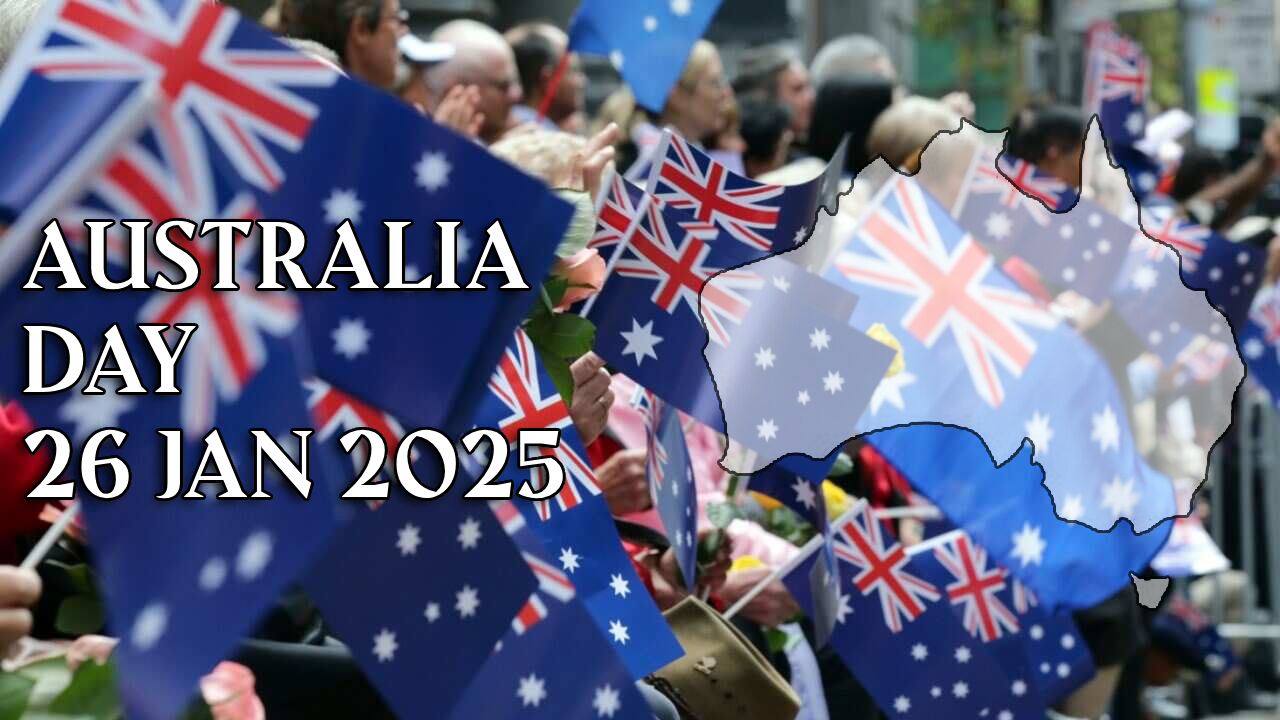Australia Day is the national day of Australia, celebrated annually on January 26th. It commemorates the arrival of the First Fleet of British ships at Port Jackson in 1788, marking the beginning of European settlement in Australia. The day is observed as a public holiday across the country and is a time for Australians to come together to celebrate their nation’s history, culture, and achievements.
Australia Day is marked by various events and activities, including citizenship ceremonies, community barbecues, fireworks, parades, and cultural performances. It is a day when people often reflect on what it means to be Australian and celebrate the diverse and multicultural aspects of the country. However, it’s important to note that the day is also a source of reflection and discussion, as some Indigenous Australians view it as a day of mourning, symbolizing the negative impacts of European colonization on their communities and cultures.
Australia Day is a significant national celebration in Australia. Here are some additional details about the day:
- Historical Significance:
- Australia Day commemorates the arrival of the First Fleet of British convicts and settlers at Port Jackson (now Sydney) on January 26, 1788.
- Captain Arthur Phillip raised the British flag and established the first European settlement in Australia.
- National Public Holiday:
- Australia Day is a public holiday observed nationwide on January 26th each year.
- It provides an opportunity for Australians to come together, celebrate their national identity, and reflect on the country’s history.
- Citizenship Ceremonies:
- Australia Day is a common day for citizenship ceremonies. Many people become Australian citizens in special ceremonies held across the country.
- The ceremonies often emphasize the values of multiculturalism and inclusion.
- Community Events:
- Communities throughout Australia organize a variety of events, including barbecues, concerts, sports competitions, parades, and firework displays.
- These events aim to bring people together, fostering a sense of unity and national pride.
- Triple J Hottest 100:
- The Triple J Hottest 100, an annual music poll conducted by the Australian radio station Triple J, is traditionally broadcast on Australia Day.
- It counts down the 100 most popular songs of the year, as voted on by listeners.
- Controversy and Reflection:
- Australia Day is not without controversy. Some Indigenous Australians refer to it as “Invasion Day” or “Survival Day,” emphasizing the negative impact of European colonization on their cultures and communities.
- There is ongoing debate about the appropriateness of celebrating Australia Day on January 26th, with discussions about potential alternative dates.
- National Symbols:
- The Australian national flag, featuring the Union Jack in the corner and the Southern Cross constellation, is commonly displayed during Australia Day celebrations.
- National symbols such as the kangaroo and the golden wattle are also associated with the day.
- Diversity and Inclusivity:
- Australia Day promotes the country’s cultural diversity, showcasing the contributions of various ethnic groups to the nation’s identity.
- The celebration highlights the importance of inclusivity and respect for different backgrounds and traditions.




